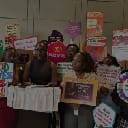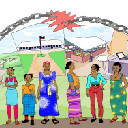Ugandan Women Take Back Coffee: Fighting for Ownership, Equality, and Respect
SIRONKO, Uganda — In the rolling hills of eastern Uganda, where coffee trees have long sustained families yet denied women control over their labor, a quiet revolution is brewing. Meridah Nandudu, a social sciences graduate and daughter of coffee farmers, has built a growing sisterhood that is challenging centuries of gender inequality in the coffee sector.
Nandudu’s strategy is simple but radical: pay women a higher price per kilogram when they deliver coffee to collection points. The impact has been immediate. Husbands who traditionally monopolized sales now encourage their wives to attend, and women are claiming their stake in the crop they’ve long nurtured. From a few dozen members in 2022, Nandudu’s Bayaaya Specialty Coffee cooperative now counts more than 600 women, representing 75% of registered farmers in this region.
For generations, women in Uganda have done the “donkey work” of coffee cultivation — planting, weeding, pulping, fermenting, washing, and drying the beans — while men reap the profits. “When coffee is ready for selling, men step in to claim the proceeds,” Nandudu explains. “Women have been discouraged by a system that values their labor but denies them economic power.”
Coffee is Uganda’s lifeblood. The country exported over 6 million bags of coffee between September 2023 and August 2024, generating $1.3 billion. But behind this national wealth, women farmers struggle for recognition and respect. In Sironko, harvest season often coincides with a spike in domestic violence, as couples clash over the earnings that men take home, sometimes without accountability.
Nandudu witnessed this firsthand as a child. Helping her mother and other women in the fields, she saw families suffer because women lacked control over coffee profits. Her father funded her education through coffee earnings, and it inspired her to create a system that ensures women directly benefit from the crop.
“Nandudu’s vision extends beyond economic gain; it is about dismantling a system that sidelines women and perpetuates inequality. Her sisterhood shows that when women control the fruits of their labor, communities thrive. Women gain financial autonomy, families benefit from equitable decisions, and a deeply patriarchal system is challenged at its core. ”
Bayaaya, launched in 2018, operates like other coffee exporters but is revolutionary in prioritizing women. It provides small bonuses during the off-season and runs a cooperative savings society. Even a small increase — an extra 200 shillings per kilogram — makes a meaningful difference, giving women both income and bargaining power within their households. “When a woman sells coffee, she has a hand in it,” Nandudu says.
Members like Linet Gimono and Juliet Kwaga testify to the social and economic transformation. Gimono now participates in decisions about household spending and can afford essentials without confrontation. Kwaga, encouraged by her husband, collects coffee herself, bringing home funds to feed and support her children. For these women, empowerment is tangible: it is control over money, dignity in the community, and recognition for labor long taken for granted.
This movement is creating a cultural shift. While many farmers have never tasted coffee themselves, young women in urban areas are embracing the beverage, engaging in roasting, quality assurance, and entrepreneurship. Phoebe Nabutale, a roaster in Mbale, notes how her female peers increasingly inquire about breaking into coffee businesses — from cultivation to export — signaling a growing appetite for women-led enterprise in the sector.
Nandudu’s vision extends beyond economic gain; it is about dismantling a system that sidelines women and perpetuates inequality. Her sisterhood shows that when women control the fruits of their labor, communities thrive. Women gain financial autonomy, families benefit from equitable decisions, and a deeply patriarchal system is challenged at its core.
In Sironko and beyond, the message is clear: women are indispensable to coffee production — and it is time they reap the rewards. This emerging sisterhood is not just changing who delivers beans to market; it is redefining who holds power, who makes decisions, and who shapes the future of Uganda’s most vital crop.
Original article written by Rodney Muhumuza, click here to read.













